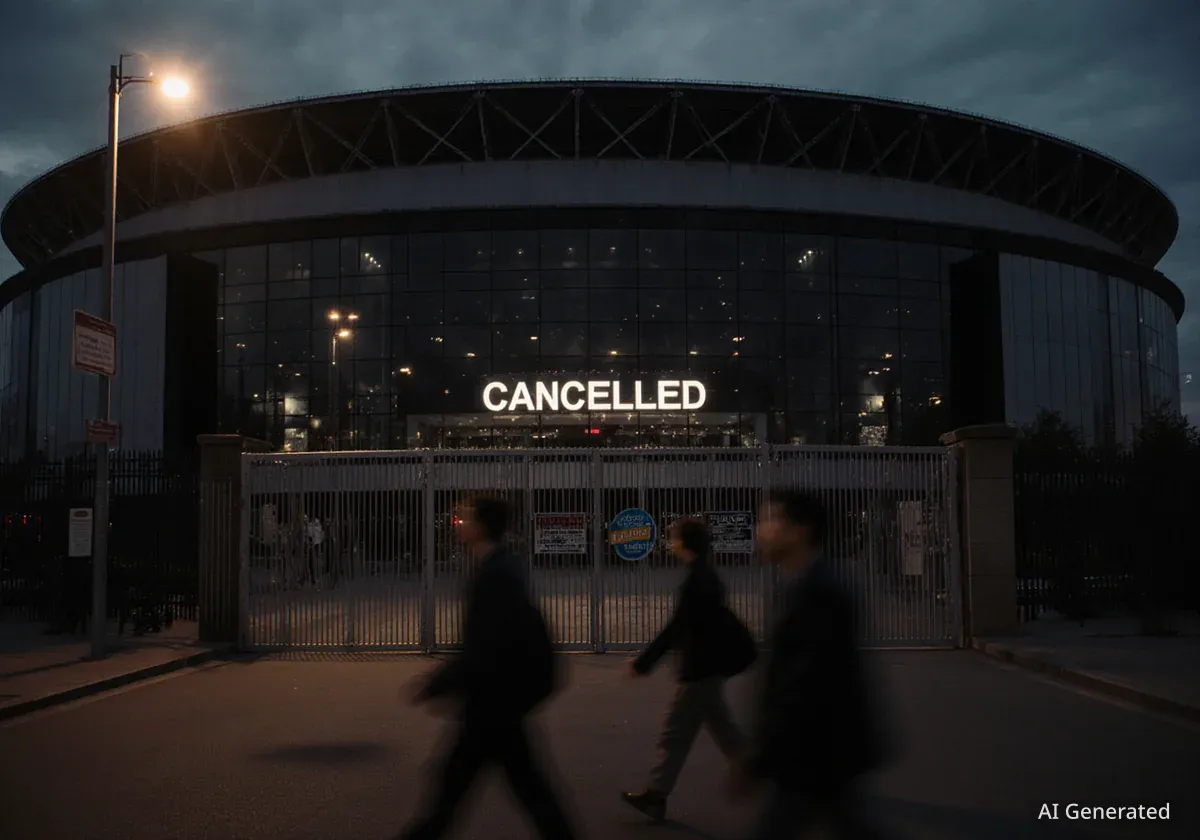A number of participants have withdrawn from the Sixth Chicago Architecture Biennial (CAB). Their decision stems from concerns over a sponsor's financial ties to a weapons manufacturer. This manufacturer reportedly supplies arms used in the conflict in Gaza.
The withdrawals highlight a growing debate within cultural institutions regarding ethical sponsorship and the broader implications of financial partnerships. Organizers face pressure to address these concerns as the event proceeds.
Key Takeaways
- Twenty-one participants, roughly 20% of the total, signed a letter of withdrawal.
- Nine of these signatories formally withdrew from the Chicago Architecture Biennial.
- The issue relates to Crown Family Philanthropies' 10% stake in General Dynamics.
- General Dynamics manufactures weapons, including the MK-84 bomb, used by the Israeli military.
- Participants argue the sponsorship conflicts with the biennial's mission of 'radical change.'
Sponsor's Link to Defense Contractor Causes Controversy
The controversy centers on Crown Family Philanthropies, a key supporter of the biennial. This philanthropic organization holds a 10% stake in General Dynamics. General Dynamics is one of the world's largest military contractors. It produces various weapons and military aircraft.
According to reports, General Dynamics supplies weapons to Israel. Among these is the MK-84 bomb. This unguided heavy explosive is known for its wide blast radius. Its use has been noted in the ongoing conflict in Gaza.
Fact Check: General Dynamics
- Rank: Fifth-largest military contractor globally.
- Products: Manufactures weapons, warcrafts, and other defense systems.
- Specific Weapon Cited: MK-84 bomb, a 2,000-lb unguided explosive.
Participant Withdrawals and Open Letter
An open letter was sent to the biennial's organizers on September 18, just one day before the event's scheduled opening. This letter announced the withdrawal of several participants. The Architect's Newspaper first reported on this development.
Out of approximately 100 participants in the biennial, 21 individuals signed the letter. This represents about 20% of the total participants. Of those who signed, nine officially withdrew their involvement from the event.
"It is a matter of public record that the Crown Family owns a 10% stake in General Dynamics, the world’s fifth-largest military contractor," the signatories stated in their letter.
The letter explicitly linked General Dynamics' products to the conflict. It highlighted the use of MK-84 bombs by the Israeli military in Gaza. This ongoing assault, they noted, has been described by international legal experts as a genocide.
Allegations of Incompatibility with Biennial's Mission
The signatories' letter detailed the perceived incompatibility of the sponsorship with the biennial's stated goals. The Chicago Architecture Biennial's mission includes addressing "architecture’s role in shaping our collective future" and pursuing "radical change."
Participants argued that supporting an entity linked to weapons manufacturing directly contradicts these values. They emphasized the extensive destruction in Gaza, impacting civilian life, infrastructure, and cultural sites.
The letter described the situation as involving "the deliberate destruction of civilian life, the starvation of civilian population as a method of warfare, forced displacements of population, and the systematic targeting of basic infrastructure including universities, hospitals, schools, and libraries." Such destruction, they stated, "will take generations to recover."
Background: US Arms Shipments
The Biden administration initially sent thousands of MK-84 bombs to Israel following Hamas's attack on October 7. However, it later blocked further exports of this specific bomb. The Trump administration had previously lifted a ban on these exports earlier this year.
Previous Concerns and Organizer's Response
This recent letter was not the first instance of participants raising concerns. About a month prior, on August 14, another letter was sent to organizers. This earlier communication also expressed worries about Crown Family Philanthropies' investments.
In response to the initial concerns, officials from the Chicago Architecture Biennial provided clarification. They stated their intention to use the Crown Family funding exclusively for educational purposes. They also confirmed that the money would not be used to directly support the exhibition itself.
As of now, the Chicago Architecture Biennial has not issued a public response to the more recent September 18 letter. Artforum, a prominent art publication, has reportedly sought comment from the biennial's organizers.
The Broader Impact on Cultural Events
This incident reflects a wider trend. Cultural institutions globally are facing increased scrutiny over their funding sources. Artists and activists are frequently challenging sponsorships tied to controversial industries or political actions.
The debate often centers on whether financial support from certain entities compromises an institution's ethical standing or its stated values. This situation in Chicago underscores the complex balance between securing funding and maintaining artistic and ethical integrity.
Such controversies can significantly impact an event's reputation and its ability to attract participants. They also force a re-evaluation of how cultural events engage with their sponsors and the public.
- Ethical Funding: The discussion highlights the importance of ethical considerations in cultural event funding.
- Artist Activism: Artists are increasingly using their platforms to challenge perceived ethical breaches by sponsors.
- Institutional Responsibility: Cultural institutions are being pressed to align their funding sources more closely with their core missions and values.
The outcome of this situation may influence how future biennials and other cultural events approach their sponsorship agreements. It emphasizes the need for transparency and clear communication with all stakeholders, including participants and the public.




